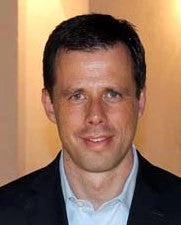
Universal health coverage (UHC)—ensuring that all people receive the quality health services they need without suffering financial hardship—is an integral part of achieving the Sustainable Development Goals. At the G20 Summit in Osaka, Japan this week, a first-ever joint session of ministers of health and finance from G20 members will focus on how to ensure sustainable financing of UHC in developing countries.
Our just launched World Bank report, High-Performance Health Financing for Universal Health Coverage, that informed the discussions at the G20 shows that the majority of developing countries will fail to achieve UHC targets set for 2030 unless they take urgent steps to reconfigure their health financing.
The report shows how insufficient, inefficient and inequitable financing of health means that people in developing countries pay about half a trillion dollars a year or over $80 per capita in out-of-pocket health expenses—which causes 100 million people to be pushed into extreme poverty globally.

By 2030 and without major policy changes, we project that for the world’s 54 poorest countries, home to 1.5 billion people, there will be a $176 billion financing gap between the funding needed for population-wide coverage with the most essential quality health services and the public funds available for health. Failure to invest in UHC will risk progress toward health and financial protection goals, leaving countries more vulnerable to disease outbreaks and undermining their economic prospects. The World Bank is helping drive domestic resource mobilization for health through the Human Capital Project.
Evidence shows that high-performance financing for UHC not only spurs health and human capital formation, it also exerts its own direct effects on the economy. The financial protection offered by UHC reduces the number of people living in poverty, and the need for precautionary savings. Sustainable health financing also ensures financial discipline and supports labor mobility and the formalization of the labor force.
Facing emerging and intensifying challenges that drive up health care costs and constrain fiscal capacity -- such as aging populations, growing burdens of non-communicable diseases, and persistent labor market informality -- developing countries will find themselves increasingly challenged to close the gap between the demands for health spending and available public resources, prolonging the reliance on inequitable out-of-pocket spending.
Change starts with countries, which can make substantial progress by adapting proven health financing principles to their specific context. For example, they can improve the efficiency and equity of resource use by prioritizing the financing of good quality primary and community health services. Joint leadership by ministries of finance and health is critical for the development and implementation of health financing policy solutions, particularly in areas where progress lags despite broad agreement on principles and policies.
Countries can further improve results by embracing resilience and sustainability with a whole of government approach. For example, raising taxes on tobacco, alcohol and sugary drinks creates a win-win for public health and government revenues.
International partners, too, must adjust their approach, increase development assistance for health and ensure that investments complement domestic resource mobilization and are aligned with country priorities. Development assistance has driven dramatic change in the past, but more recently growth in investments has slowed down. Development assistance needs to target countries and populations that are furthest behind and also prioritize investing in a country’s governance and organizational capacity to help them overcome financing shortcomings in the long-term.
Even under the most optimistic scenario, these measures will cover less than half of the financing gap projected for 2030. This is why it is imperative to foster innovation in health financing that generates new solutions that can help increase pre-paid and pooled financing instead of the pay-as-you-go out of pocket of spending, tap into private sector sources and create the incentives for quality and efficiency of service delivery.
G20 Finance Ministers can help transform health financing in developing countries in several ways. First, by holding regular dialogues on resilient and sustainable financing for UHC between ministers of finance and health. Second, by creating a dedicated innovation fund for health financing to identify new opportunities. Finally, the G20 can also ensure that development assistance for health effectively catalyzes efficient and equitable use and mobilization of domestic resources and strengthens country capacities in sustainable health financing.
Unless urgent action is taken on health financing, countries will miss the opportunity that high performance health financing for UHC offers to spur sustainable, inclusive growth. This threatens to put out of reach not only Sustainable Development Goal 3 on Health, but also our common global goal of ending extreme poverty by 2030. With just over a decade out from the SDG deadline of 2030, the time to act is now.
Read more:
- Press release: World Bank: People Spend Half a Trillion Dollars Out-Of-Pocket on Health in Developing Countries Annually
- Publication: High-Performance Health-Financing for Universal Health Coverage: Driving Sustainable, Inclusive Growth in the 21st Century
- Infographic: Universal Health Coverage (UHC) = All People Have Access to Quality, Affordable Health Services


Join the Conversation